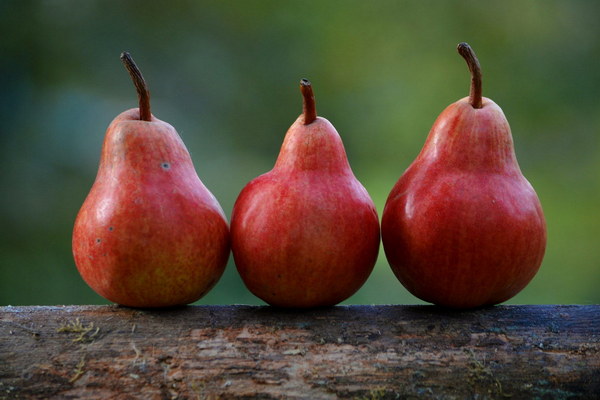Revitalize Your Lungs Discover the Best Herbs for Chest Discomfort and Shortness of Breath
Introduction:
Chronic chest discomfort and shortness of breath can be quite distressing, affecting both your physical and mental well-being. While modern medicine offers various treatments, natural remedies can also be beneficial, especially when it comes to nourishing your lungs. In this article, we will explore the best herbs that can help alleviate chest discomfort and shortness of breath, providing you with a natural way to breathe easier and improve your lung health.
1. Licorice Root:
Licorice root has been used for centuries in traditional Chinese medicine to treat respiratory conditions. This herb has anti-inflammatory properties that can help soothe your throat and lungs, reducing chest discomfort. It can also help in relaxing the airways, making it easier to breathe. To use licorice root, you can prepare a tea by boiling the root in water for about 10-15 minutes and drinking it twice a day.

2. Eleuthero Root:
Also known as Siberian ginseng, eleuthero root is a natural adaptogen that can help strengthen your immune system and improve lung function. It has been found to enhance respiratory capacity and reduce symptoms of asthma and chronic obstructive pulmonary disease (COPD). To incorporate eleuthero root into your routine, you can take it as a supplement in capsule form or use it in herbal teas.
3. Mullein:
Mullein is a powerful herb that can help alleviate chest discomfort and improve lung function. Its leaves contain mucilage, a substance that helps in soothing the respiratory tract and reducing inflammation. You can prepare mullein tea by steeping the leaves in hot water for 5-10 minutes and drinking it twice a day. Additionally, mullein can be used in the form of a steam inhalation to clear the lungs and relieve congestion.
4. Thyme:
Thyme is a well-known herb with a rich history of use in traditional medicine. It possesses expectorant properties, which means it can help loosen and expel mucus from the lungs, making it easier to breathe. Thyme can be used in various forms, such as tea, tincture, or essential oil. To make thyme tea, steep the fresh or dried leaves in hot water for about 10 minutes before straining and drinking it.
5. Eucalyptus:
Eucalyptus is another herb that can be beneficial for chest discomfort and shortness of breath. Its essential oil has antibacterial and antiviral properties that can help in treating respiratory infections. Eucalyptus can be used in steam inhalations, where you add a few drops of the essential oil to boiling water and inhale the steam. Alternatively, you can apply a diluted eucalyptus oil topically to the chest and back to relieve congestion and promote breathing.
6. Peppermint:
Peppermint is a versatile herb that can help in soothing the respiratory tract and reducing inflammation. Its menthol content can provide a cooling sensation, making it easier to breathe. To use peppermint, you can make a tea by steeping the leaves in hot water for 5-10 minutes, or inhale peppermint essential oil in a diffuser to create a calming and refreshing atmosphere.
Conclusion:
While medication can be essential in managing chest discomfort and shortness of breath, incorporating these natural herbs into your daily routine can provide relief and support lung health. Always consult with a healthcare professional before starting any new treatment, especially if you have underlying health conditions or are pregnant. By exploring these natural remedies, you can take a holistic approach to improving your lung function and breathing easier.









